
Find Help
More Items From Ergsy search
-

How do I prepare for hip replacement surgery?
Relevance: 100%
-

How long does a hip replacement surgery take?
Relevance: 85%
-

What is minimally invasive hip replacement surgery?
Relevance: 83%
-
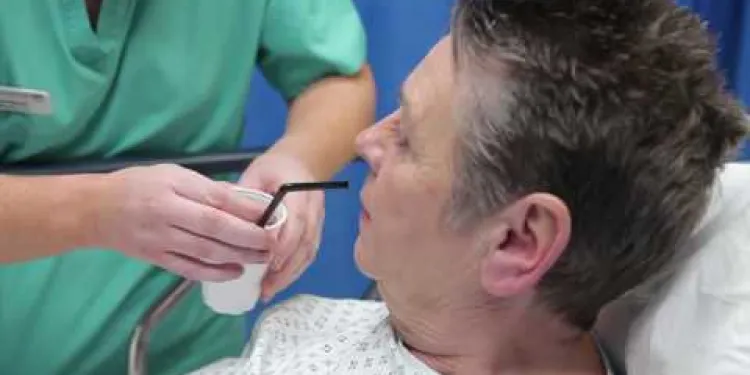
Hip replacement
Relevance: 82%
-
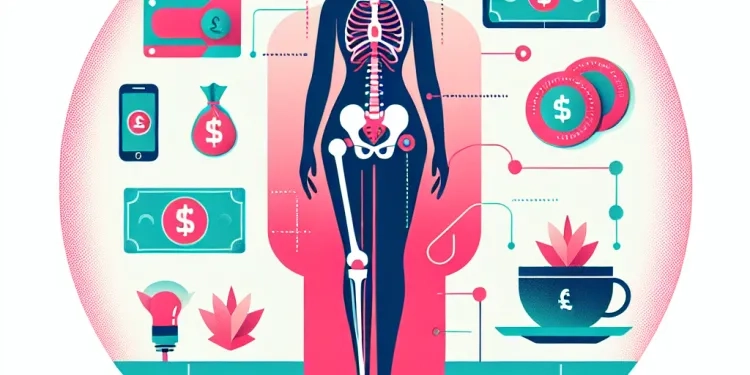
What are the risks associated with hip replacement surgery?
Relevance: 82%
-

Total hip replacement
Relevance: 79%
-

How much does hip replacement surgery cost in the UK?
Relevance: 77%
-

What is a hip replacement?
Relevance: 77%
-

Do I need a Hip Replacement?
Relevance: 77%
-
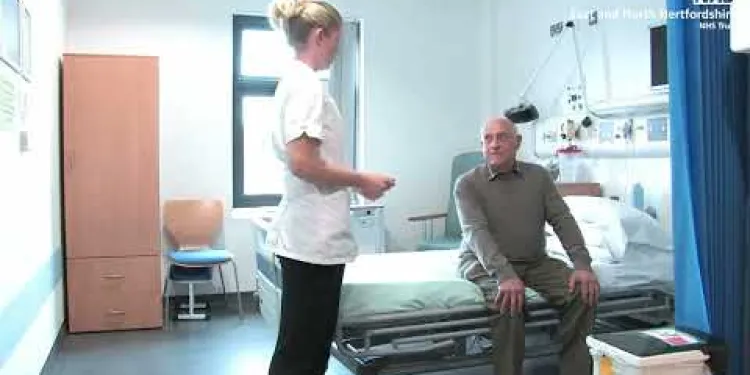
A journey to hip surgery
Relevance: 75%
-

Total Hip Replacement
Relevance: 74%
-

What type of anaesthesia is used during hip replacement surgery?
Relevance: 73%
-

Can both hips be replaced at the same time?
Relevance: 71%
-

Total hip replacement at Northumbria Healthcare
Relevance: 70%
-

What is the recovery time for a hip replacement?
Relevance: 69%
-

Your anaesthetic choices for your planned hip or knee replacement surgery at the RUH.
Relevance: 67%
-
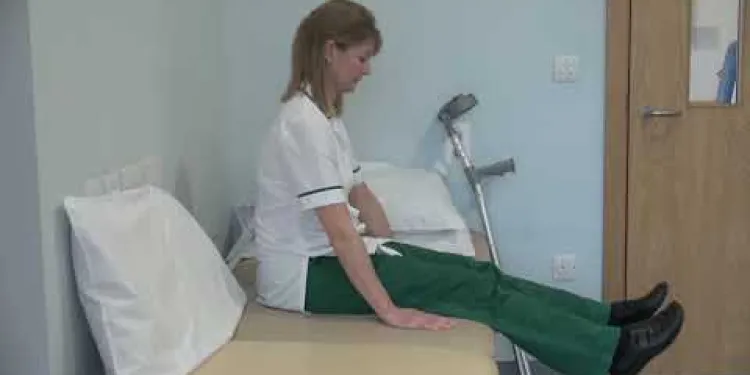
Hip replacement - getting into bed
Relevance: 67%
-

Will I need physical therapy after a hip replacement?
Relevance: 66%
-

How long does it take to recover from a hip replacement operation?
Relevance: 57%
-
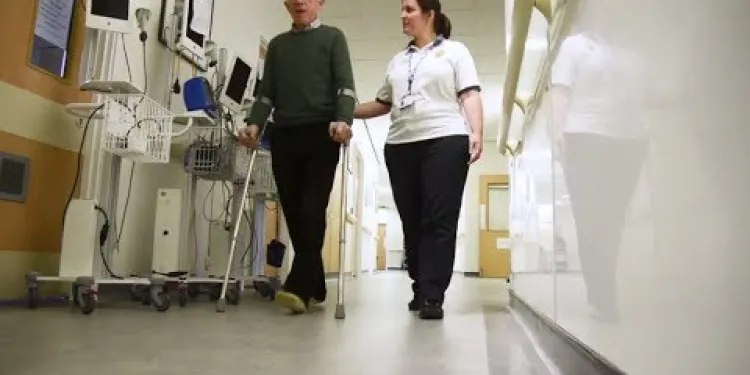
Having a hip replacement - Part Two: Recovery
Relevance: 55%
-

Same day discharge for NHS Golden Jubilee’s hip replacement patients
Relevance: 53%
-

Osteoarthritis of the Hip
Relevance: 50%
-

Are there different types of hip implants?
Relevance: 49%
-

Enhanced Recovery - Hip
Relevance: 49%
-
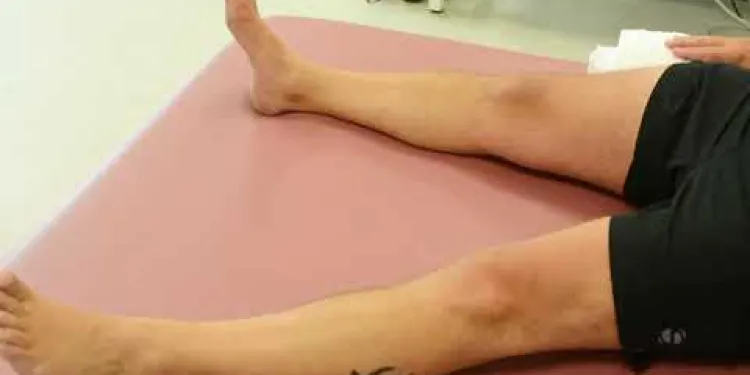
Joint School - Hip Exercises
Relevance: 48%
-

Osteoarthritis of the Hip
Relevance: 46%
-

How long do hip replacement implants last?
Relevance: 46%
-

What can I expect during the first few weeks after hip replacement surgery?
Relevance: 45%
-

Knee replacement
Relevance: 43%
-

Will I be able to return to normal activities after hip replacement?
Relevance: 43%
-

Total knee replacement
Relevance: 40%
-

Total Knee Replacement
Relevance: 37%
-

How should I prepare for a facelift?
Relevance: 35%
-
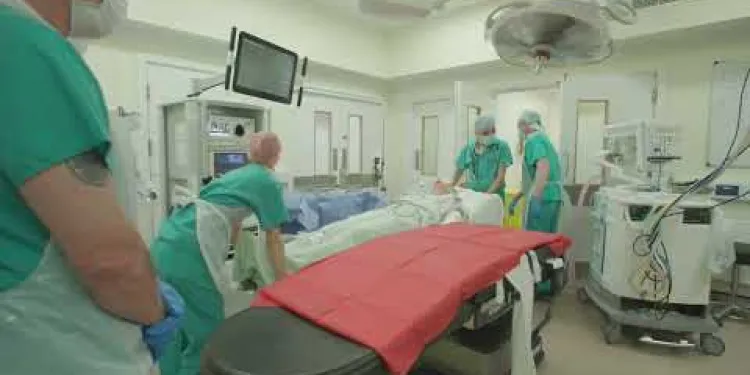
Prostate Surgery
Relevance: 34%
-
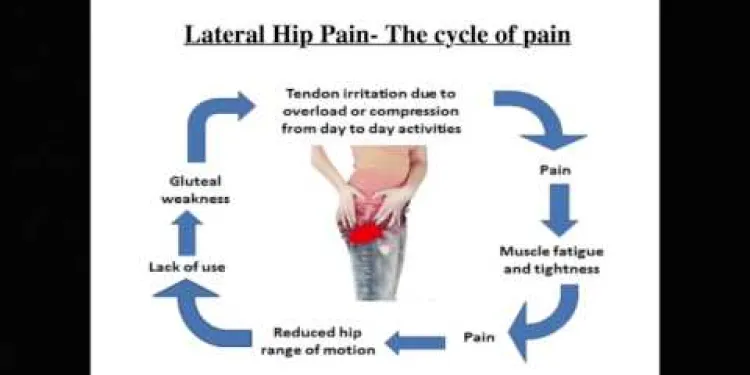
Advice - How to manage your lateral hip pain
Relevance: 33%
-
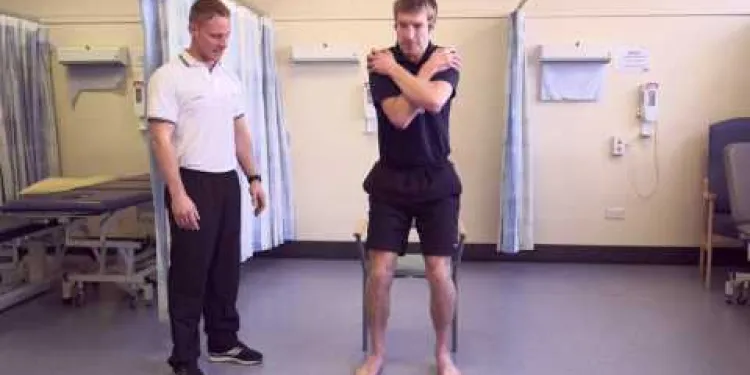
Exercises to help your lateral hip pain
Relevance: 33%
-

NHS Faces Backlash Over Record-Breaking Surgery Waiting Times
Relevance: 33%
-

On the day of your cataract surgery
Relevance: 32%
-

Who is a candidate for a hip replacement?
Relevance: 32%
-

How do I know if my surgery is considered elective or urgent?
Relevance: 30%
Understanding Hip Replacement Surgery
Hip replacement surgery, known as arthroplasty, involves replacing a damaged hip joint with a prosthetic implant. It's a common procedure for relieving pain and improving mobility in patients with severe arthritis or hip damage. Proper preparation is essential to ensure a successful outcome and recovery.
Consultation and Pre-Surgery Assessments
Your first step is consulting with your GP and an orthopaedic specialist. They will assess your condition through physical examinations and imaging tests such as X-rays or MRIs to determine the severity of your hip damage. This consultation also helps in deciding if hip replacement is the most suitable treatment for you.
Optimising Physical Health
Improving your physical health can significantly impact your recovery. Engage in recommended exercises to strengthen the muscles around your hip. Losing excess weight can also reduce the stress on your hip joint and improve surgical outcomes. Your healthcare team may refer you to a physiotherapist for a personalised exercise plan.
Managing Pre-Existing Conditions
Ensure that chronic conditions like diabetes, hypertension, or heart disease are well-managed. You may need to coordinate with your GP or specialists to adjust medications or receive additional treatment to stabilise these conditions before surgery.
Pre-Surgery Education
Attend any pre-operative education classes offered by your hospital. These classes provide valuable information about the surgery, post-operative care, and rehabilitation process. Educating yourself can help reduce anxiety and prepare you mentally for the procedure.
Preparing Your Home
Make necessary modifications to your home to accommodate your post-surgery needs. Consider installing handrails, removing tripping hazards, and setting up a temporary bedroom on the ground floor if stairs are a concern. Arrange for assistance with daily activities during the initial recovery period if needed.
Diet and Nutrition
Maintain a balanced diet rich in vitamins and minerals to support healing. Your healthcare provider might suggest specific dietary adjustments, including increasing protein intake or taking supplements like vitamin D and calcium to strengthen your bones.
Avoiding Certain Medications
Your medical team will advise you on which medications to avoid leading up to your surgery, particularly those that can increase bleeding risk, such as aspirin and certain anti-inflammatories. Ensure to discuss all your medications with your doctor, including over-the-counter and herbal supplements.
Arranging Transportation
Arrange for transportation to and from the hospital, as you won’t be able to drive immediately after the surgery. Ensure you have a reliable friend or family member available to help.
Final Preparations
Follow pre-operative instructions provided by your healthcare team, including fasting guidelines. Confirm your surgery date and time, and ensure you know what personal items to bring to the hospital. Being well-prepared can help alleviate stress and enable a smoother recovery process.
Understanding Hip Replacement Surgery
Hip replacement surgery is when doctors replace a bad hip joint with a new one. This helps people who have a lot of pain or trouble moving because of arthritis or hip problems. Getting ready before the surgery is important for a good recovery.
Consultation and Pre-Surgery Assessments
First, talk to your regular doctor and a hip specialist. They will check how bad your hip is using tests like X-rays. This will help decide if the surgery is the best choice for you.
Optimising Physical Health
Getting your body strong before surgery helps you recover better. Do exercises that make the muscles around your hip stronger. Losing extra weight also helps your hip. A physiotherapist can help you with a plan.
Managing Pre-Existing Conditions
If you have health problems like diabetes or high blood pressure, make sure they are under control. Talk to your doctor about changing medications or getting extra help if needed before the surgery.
Pre-Surgery Education
Go to any surgery classes your hospital offers. These classes teach you about the surgery and recovery. Knowing more can make you feel less worried and ready for the surgery.
Preparing Your Home
Change your home to make it easier after surgery. You might need to put in handrails, clear paths, and set up a bedroom downstairs if you have trouble with stairs. Plan for help with daily chores if you need it.
Diet and Nutrition
Eat healthy foods full of vitamins and minerals. This helps your body heal. Your doctor may suggest eating more protein or taking vitamins like D and calcium to make your bones strong.
Avoiding Certain Medications
Your doctors will tell you which medicines to stop taking before surgery. Some medicines, like aspirin, can cause more bleeding. Make sure to tell your doctor about all the medicines you take, even herbal ones.
Arranging Transportation
Plan how to get to and from the hospital because you cannot drive after surgery. Ask someone you trust to help bring you home.
Final Preparations
Follow any pre-surgery instructions from your healthcare team, like when to stop eating before surgery. Confirm the date and time of your surgery and know what to pack for the hospital. Being ready can make you feel less worried and help you recover better.
Frequently Asked Questions
What medical evaluations are needed before hip replacement surgery?
You'll need a full medical evaluation, including blood tests, an ECG, and a physical examination to ensure you're healthy enough for surgery.
Should I attend a pre-operative educational class?
Yes, attending a pre-operative class can provide valuable information about the procedure, recovery, and how to prepare.
How should I prepare my home for after surgery?
Remove any tripping hazards, install handrails in the bathroom, and ensure you have a comfortable chair that is easy to get in and out of.
Will I need to stop taking certain medications before surgery?
Your surgeon will provide instructions on which medications to stop or continue before surgery, such as blood thinners.
What should I bring to the hospital for my hip replacement surgery?
Bring any necessary personal items, your identification, insurance information, and a list of your current medications.
How can I manage anxiety about the surgery?
Speak to your doctor, use relaxation techniques, and gather information about the procedure to alleviate anxiety.
Is it necessary to lose weight before hip replacement surgery?
Losing weight can help reduce stress on the new hip and may improve surgical outcomes.
What kind of exercises should I do before the surgery?
Low-impact exercises, such as swimming or cycling, and specific physical therapy exercises can help strengthen surrounding muscles.
Will I need any special devices for recovery?
Yes, assistive devices such as crutches, a walker, or a raised toilet seat may be recommended.
What dietary changes should I make before hip replacement surgery?
Maintain a healthy, balanced diet to support healing and possibly reduce inflammation before surgery.
How do I arrange for help at home after my hip replacement?
Arrange for a family member or friend to help with daily tasks or consider hiring a professional caregiver.
Is it okay to drink alcohol before hip replacement surgery?
You should avoid alcohol before surgery as it can interfere with anesthesia and medications.
When should I stop eating and drinking before the surgery?
You will likely be instructed to stop eating and drinking at midnight before the day of surgery.
What clothing should I wear on the day of the surgery?
Wear loose-fitting, comfortable clothing that is easy to change out of and back into after surgery.
How should I prepare mentally for hip replacement surgery?
Educate yourself about the surgery, talk to others who have had it, and consider mindfulness or relaxation practices.
What is the recovery time after hip replacement surgery?
Recovery can vary, but many people resume normal activities within 8 to 12 weeks post-surgery.
What can I do to ensure a smooth recovery after surgery?
Follow all post-operative instructions from your surgeon, attend all follow-up appointments, and continue prescribed physical therapy.
Do I need to stop smoking before hip replacement surgery?
Yes, quitting smoking before surgery can improve healing and reduce the risk of complications.
Can I continue to take my daily vitamins and supplements?
Consult with your surgeon regarding continuing any vitamins or supplements prior to surgery.
How do I prepare for anesthesia during hip replacement surgery?
Discuss any allergies or previous reactions to anesthesia with your anesthesiologist during your pre-operative appointment.
What health checks do you need before hip surgery?
You need to see a doctor to check your health. They will look at your blood, your heart with a test called an ECG, and your body. This is to make sure you are ready for the surgery.
Should I go to a class before my surgery?
Yes, going to a class before your operation can give you important information. You will learn about the surgery, how to get better, and how to get ready.
How can I get my home ready for after surgery?
Surgery is when a doctor does an operation to fix something in your body. After surgery, you need to rest and heal. Here are some simple steps to get your home ready:
- Comfortable place to rest: Have a cozy bed or chair where you can relax. Use soft pillows and blankets.
- Easy-to-reach things: Keep important items like water, snacks, and medicine close to you so you don’t have to get up too much.
- Ask for help: Friends and family can help with cooking, cleaning, or getting groceries.
- Safety first: Make sure there are no things on the floor you might trip over.
- Relaxing activities: Have books, movies, or music ready to keep you entertained while you rest.
You can also use reminders on your phone to help you remember when to take your medicine. Remember to follow your doctor’s advice and get lots of rest. Your body needs time to get better.
Take away anything that you might trip over, put handrails in the bathroom, and have a comfy chair that is easy to sit in and stand up from.
Do I need to stop taking my medicine before my surgery?
Your doctor will tell you what medicines to stop or keep taking before your surgery. This can include medicines that make your blood thinner.
What should I take to the hospital for my hip surgery?
Going to the hospital for hip surgery? Here are some things to pack:
- Clothes: Bring loose and comfy clothes.
- Toothbrush and toothpaste: Keep clean and fresh.
- Book or toy: Something fun to do, like a book or small toy.
- List of medicines: Write down what medicines you take.
- Snacks: Bring your favorite snack if allowed.
Ask someone for help if you need it. Use a checklist to make packing easy.
Bring the things you need, like your ID, health card, and a list of any medicines you take now.
How can I feel less worried about the surgery?
Talk to your doctor. Try to relax. Learn more about what will happen. This can help you feel less worried.
Do I need to lose weight before having hip surgery?
Losing weight can help your new hip feel better. It can also help you heal well after surgery.
What exercises should I do before my operation?
Here is some help to make the exercises easier:
- Ask your doctor what exercises are best for you.
- Try easy stretches to keep your body moving.
- Practice deep breathing to help you relax.
- Use tools like videos or picture guides to help understand exercises.
- Get help from a friend or family if needed.
Gentle exercises like swimming or riding a bike can help. Doing special exercises with a physical therapist can also make your muscles stronger.
Will I need any special tools to get better?
Yes, some tools can help, like crutches, a walker, or a high toilet seat.
What should I eat before hip surgery?
Before you have hip surgery, eating well can help. Here are some tips:
- Eat fruits and vegetables. They are good for you.
- Have some protein like chicken, fish, beans, or eggs. Protein helps your body heal.
- Drink plenty of water. Staying hydrated is important.
- Avoid junk food like chips and sweets. They are not good for your body.
If you need help planning your meals, ask a grown-up or a doctor. They can help you pick the right foods.
Eat healthy food to help your body get better and maybe stop swelling before surgery.
How can I get help at home after my hip operation?
Ask a family member or friend to help you with things you do every day. You can also think about hiring a professional caregiver to help you.
Can you drink alcohol before hip surgery?
It's important to talk to your doctor about drinking alcohol before surgery. Alcohol can change how your body handles surgery and medicine. Ask your doctor to know what's best for you.
Here are some tips to help you understand:
- Ask your doctor any questions you have.
- Write down what your doctor says, so you remember.
- You can use pictures or videos to help you understand better.
Do not drink alcohol before your surgery. Alcohol can cause problems with the special medicine that makes you sleep during the surgery.
When should I stop eating and drinking before the surgery?
You need to stop eating or drinking before surgery. This is important so your tummy is empty.
Ask your doctor when to stop eating and drinking. They will tell you the right time.
If you find reading hard, ask someone to read with you. They can help you understand.
Your doctor will probably tell you to stop eating and drinking when the clock hits midnight before your surgery day.
What should I wear on the day of the surgery?
Wear comfortable clothes that are easy to put on and take off. Choose a shirt that buttons or zips in the front. This will make it easier after surgery.
You might want to use a checklist to help you remember what to wear. You can ask someone to help you if you need.
Wear clothes that are loose and comfy. Make sure they are easy to take off and put back on after your surgery.
How can I get my mind ready for hip replacement surgery?
It is normal to feel nervous about an operation. Here are some tips to help you feel ready:
- Learn about the surgery: Ask your doctor to explain what will happen.
- Talk to others: Speak with people who had the same surgery. They can share their experience.
- Ask questions: Write down any questions you have and ask your doctor.
- Relaxation exercises: Try deep breathing or listening to calming music to feel more relaxed.
- Support from friends and family: Talk about your feelings with someone you trust.
- Mental health support: Consider talking to a counselor if you feel very anxious.
These steps can help you feel calm and ready for your surgery.
Learn about the surgery. Talk to people who have had the surgery. Try things like deep breathing or relaxing exercises to feel calm.
How long until you feel better after getting a new hip?
Getting better after surgery can be different for everyone. But most people start doing normal things again in 8 to 12 weeks.
How can I get better after my surgery?
Here are some simple steps to help you get better after surgery:
- Rest: Make sure you rest a lot. Your body needs time to heal.
- Follow doctor's orders: Do what the doctor says. Take your medicine when you are told.
- Eat well: Eat healthy foods. They help your body get strong.
- Drink water: Drink lots of water. It is important to stay hydrated.
- Ask for help: If you need help, ask a family member or friend.
Do you need more support to understand or remember these steps? Here are some ideas:
- Use pictures. Draw what you need to do.
- Make a list and check off each step you do.
- Set reminders on your phone to help you remember.
Listen to your doctor after surgery. Go to all your check-up visits. Do your exercises if your doctor gives you any.
Should I stop smoking before hip surgery?
Yes, if you stop smoking before your surgery, it helps your body heal better and lowers the chance of problems.
Can I keep taking my daily vitamins and pills?
Talk to your doctor about taking vitamins or supplements before your surgery.
Getting Ready for Sleep Medicine in Hip Surgery
Before your hip surgery, you will get sleep medicine to stop you from feeling pain. Here is how you can get ready:
- Talk with your doctor. They will explain what will happen.
- Tell the doctor about your health. Say if you take any medicine.
- Do not eat or drink before the surgery. The doctor will tell you when to stop.
- Ask questions if you do not understand something.
Some things can help you feel better:
- Take deep breaths to stay calm.
- Bring a favorite object or toy for comfort.
- Use headphones to listen to music.
Remember, the doctors and nurses are there to help you feel safe and comfortable.
Talk to your doctor about any allergies you have. Also, tell them if you had a bad reaction to sleep medicine before surgery. Do this before your surgery at your check-up.
Useful Links
This website offers general information and is not a substitute for professional advice.
Always seek guidance from qualified professionals.
If you have any medical concerns or need urgent help, contact a healthcare professional or emergency services immediately.
Some of this content was generated with AI assistance. We’ve done our best to keep it accurate, helpful, and human-friendly.
- Ergsy carfully checks the information in the videos we provide here.
- Videos shown by Youtube after a video has completed, have NOT been reviewed by ERGSY.
- To view, click the arrow in centre of video.
- Most of the videos you find here will have subtitles and/or closed captions available.
- You may need to turn these on, and choose your preferred language.
- Go to the video you'd like to watch.
- If closed captions (CC) are available, settings will be visible on the bottom right of the video player.
- To turn on Captions, click settings .
- To turn off Captions, click settings again.
More Items From Ergsy search
-

How do I prepare for hip replacement surgery?
Relevance: 100%
-

How long does a hip replacement surgery take?
Relevance: 85%
-

What is minimally invasive hip replacement surgery?
Relevance: 83%
-

Hip replacement
Relevance: 82%
-

What are the risks associated with hip replacement surgery?
Relevance: 82%
-

Total hip replacement
Relevance: 79%
-

How much does hip replacement surgery cost in the UK?
Relevance: 77%
-

What is a hip replacement?
Relevance: 77%
-

Do I need a Hip Replacement?
Relevance: 77%
-

A journey to hip surgery
Relevance: 75%
-

Total Hip Replacement
Relevance: 74%
-

What type of anaesthesia is used during hip replacement surgery?
Relevance: 73%
-

Can both hips be replaced at the same time?
Relevance: 71%
-

Total hip replacement at Northumbria Healthcare
Relevance: 70%
-

What is the recovery time for a hip replacement?
Relevance: 69%
-

Your anaesthetic choices for your planned hip or knee replacement surgery at the RUH.
Relevance: 67%
-

Hip replacement - getting into bed
Relevance: 67%
-

Will I need physical therapy after a hip replacement?
Relevance: 66%
-

How long does it take to recover from a hip replacement operation?
Relevance: 57%
-

Having a hip replacement - Part Two: Recovery
Relevance: 55%
-

Same day discharge for NHS Golden Jubilee’s hip replacement patients
Relevance: 53%
-

Osteoarthritis of the Hip
Relevance: 50%
-

Are there different types of hip implants?
Relevance: 49%
-

Enhanced Recovery - Hip
Relevance: 49%
-

Joint School - Hip Exercises
Relevance: 48%
-

Osteoarthritis of the Hip
Relevance: 46%
-

How long do hip replacement implants last?
Relevance: 46%
-

What can I expect during the first few weeks after hip replacement surgery?
Relevance: 45%
-

Knee replacement
Relevance: 43%
-

Will I be able to return to normal activities after hip replacement?
Relevance: 43%
-

Total knee replacement
Relevance: 40%
-

Total Knee Replacement
Relevance: 37%
-

How should I prepare for a facelift?
Relevance: 35%
-

Prostate Surgery
Relevance: 34%
-

Advice - How to manage your lateral hip pain
Relevance: 33%
-

Exercises to help your lateral hip pain
Relevance: 33%
-

NHS Faces Backlash Over Record-Breaking Surgery Waiting Times
Relevance: 33%
-

On the day of your cataract surgery
Relevance: 32%
-

Who is a candidate for a hip replacement?
Relevance: 32%
-

How do I know if my surgery is considered elective or urgent?
Relevance: 30%


